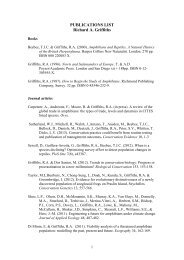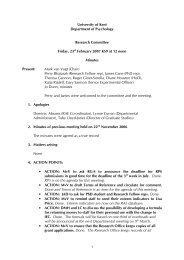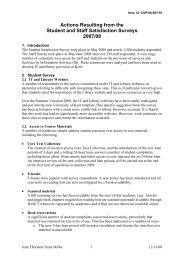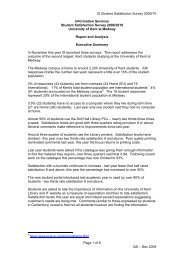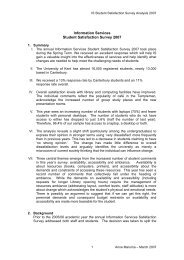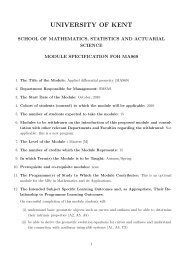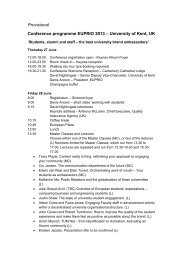cspdf, Job 181 - University of Kent
cspdf, Job 181 - University of Kent
cspdf, Job 181 - University of Kent
You also want an ePaper? Increase the reach of your titles
YUMPU automatically turns print PDFs into web optimized ePapers that Google loves.
in a protective self-denial <strong>of</strong> their subjection. But the redeeming element <strong>of</strong><br />
this narrative compels me to move away from the dooming aspects <strong>of</strong> the<br />
Edenic rationale. I believe that in the crypto-colonial context <strong>of</strong> the postliberation<br />
period, the legend <strong>of</strong> the ‘chosen’ helped Greeks to claim symbolic<br />
superiority vis-à-vis their Western patrons. The game that the Greeks played<br />
is commonly known as hermeneutics, an actual case <strong>of</strong> re-interpretation <strong>of</strong> a<br />
historical narrative. The narrative <strong>of</strong> the ‘chosen people’ presented a surplus<br />
<strong>of</strong> meanings, ‘allowing the production <strong>of</strong> new statements’ (Kearney, 1984: 38)<br />
that kept a distinctively Greek culture alive. In the post-liberation version <strong>of</strong><br />
the ‘chosen’ the Byzantine Greeks became a ‘nation’ (note how the idea <strong>of</strong> the<br />
‘nation’ was projected back to the pre-Ottoman past) that had suffered in the<br />
hands <strong>of</strong> the Turks because the ‘West’ (an imaginary entity and a category<br />
which did not exist at the dawn <strong>of</strong> the modern ages) did not assist Greek<br />
Byzantium in its defence against them. Significantly, in this case Byzantium<br />
was seen by Greeks as a benefactor <strong>of</strong> the civilised world, because it held<br />
back the Turkish ‘tide’ for just long enough to reduce Ottoman power and<br />
increase Western defence. When the Byzantine Empire fell, all its scholars fled<br />
to the West, bringing the ‘lights <strong>of</strong> civilisation’ to its ‘unrefined’ populations,<br />
and reviving Hellenic ‘Greekness’ in the form <strong>of</strong> a Renaissance. Again, the<br />
narrative pays disproportionate attention to the importance <strong>of</strong> Greek cultural<br />
capital, implicitly juxtaposing it to Western economic and political capital. The<br />
narrative is still being perpetrated in the work <strong>of</strong> certain Greek academic<br />
scholars. We read for example in the seminal study <strong>of</strong> Byzantium by the<br />
byzantinist John Karayannopoulos that:



